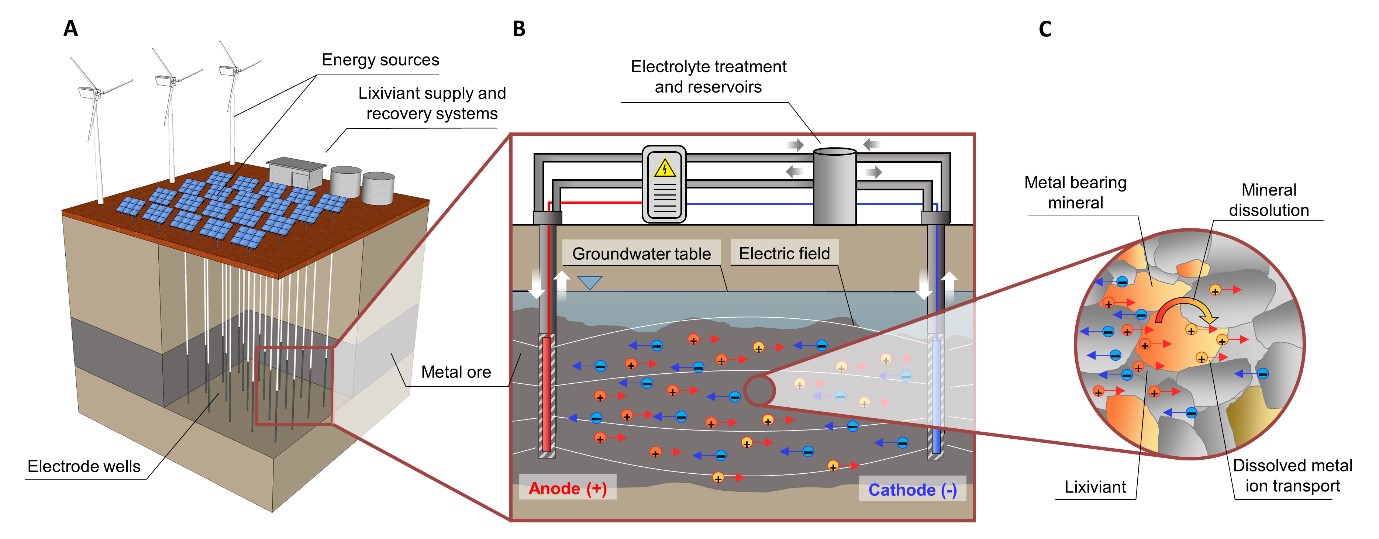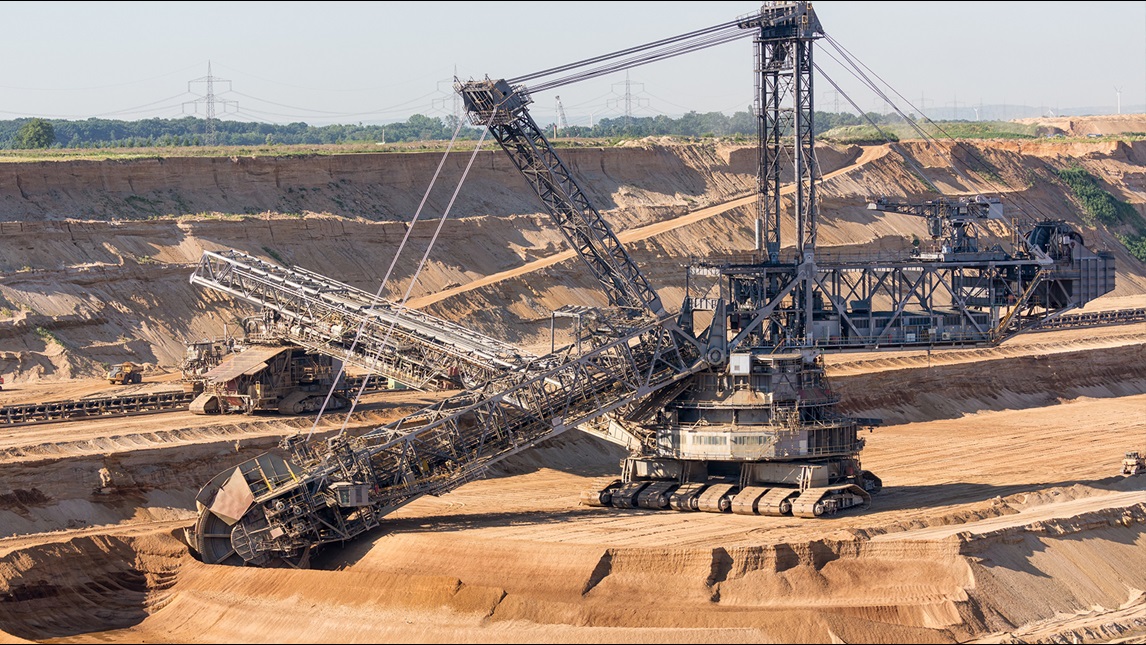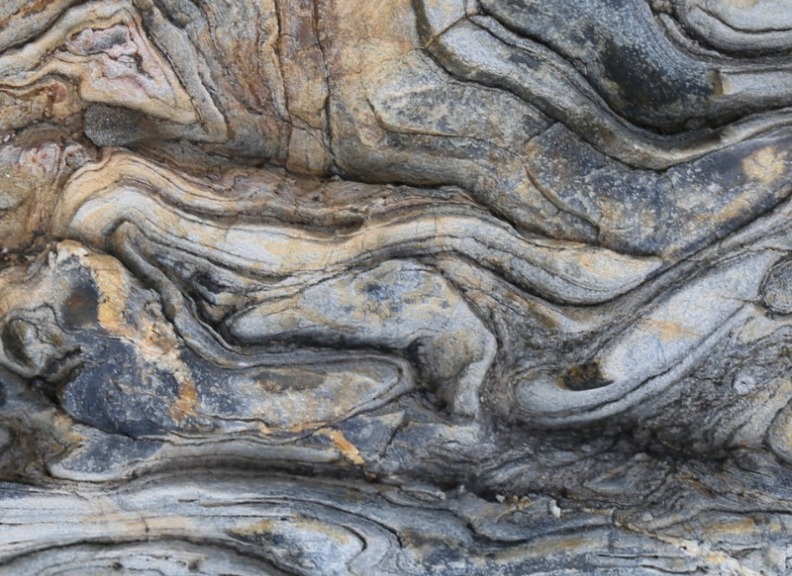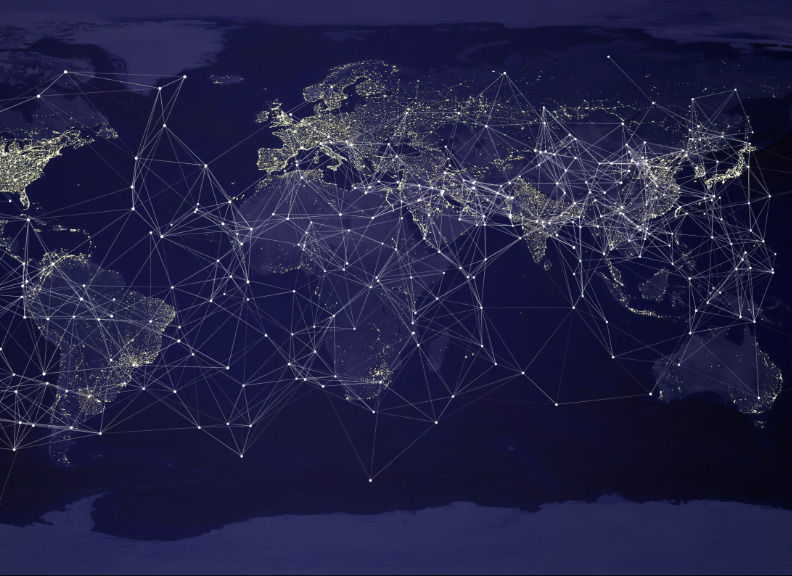PROJECT
Mining without digging
Toward a more sustainable mining future with electrokinetic in situ leaching
Metals are currently almost exclusively extracted from their ore via physical excavation, making metal mining one of the foremost CO2 emitting activities and mine waste to be the single largest waste form by mass.
Electrokinetic in-situ leaching (EK-ISL) is a promising new mining technology that allows for the recovery of metals from low-permeability ore bodies without excavation or permeability enhancement techniques such as fracking. Instead, it uses electric fields to induce the transport of charged chemical species that facilitate the selective dissolution, transport and recovery of targeted metals such as copper or gold. EK-ISL promises a significantly reduced mining footprint as it eliminates the need for the physical excavation of not only the targeted ore body but also of staggering amounts of overburden.
This project is providing multiple exciting PhD opportunities that will provide the scientific base to support the ongoing development of EK-ISL. The PhD studies will focus on developing a further refined mechanistic understanding of the hydrogeological and geochemical/mineralogical controls of the leaching process across multiple spatial and temporal scales.
Depending on the research interest and background of the applicant, the PhD projects might strongly focus on experimental aspects or the development and application of reactive transport model approaches that support the development an in-depth understanding of EK-ISL-relevant processes. All projects will be highly interdisciplinary, involving knowledge and collaboration across the geological, geochemical, electrochemical, hydrometallurgical and numerical modelling aspects of EK-ISL.
As part of this project the successful PhD applicant will:
- Perform and analyse laboratory-scale experiments to study the reactive transport processes involved in extracting metals from various media such as intact ore samples and tailings waste
- Contribute to the development and application of process-based numerical models to simulate the coupled physical and geochemical process involved in electrokinetic in situ leaching
- Develop and test EK-ISL for a broader range of lixiviant-metal systems

Suggested readings
- Martens, E., Prommer, H., Dai, X., Wu, M. Z., Sun, J., Breuer, P., and Fourie, A. (2018). Feasibility of electrokinetic in situ leaching of gold. Hydrometallurgy, 175, 70-78.
- Martens, E., Prommer, H., Dai, X., Sun, J., Breuer, P., and Fourie, A. (2018). Electrokinetic in situ leaching of gold from intact ore. Hydrometallurgy, 178, 124-136.
- Martens, E., Prommer, H., Sprocati, R., Sun, J., Dai, X., Crane, R., Jamieson, J., Tong, P. O., Rolle, M., and Fourie, A. (2021). Toward a more sustainable mining future with electrokinetic in situ leaching. Science Advances, 7(18)
Research team leader: Professor Henning Prommer
"I am leading a research team of numerical modellers and experimentalists studying a wide range of reactive transport processes in the subsurface. Our research is focused on understanding water-rock interactions and the hydrochemical evolution in natural and anthropogenically perturbed aquifer systems. While most of our research addresses groundwater quality issues, we also work on the development of novel in situ mining techniques."
Collaborations
External Collaborators:
- Prof. Andy Fourie, Department of Civil, Mining and Environmental Engineering, UWA
- A/Prof. Massimo Rolle, Technical University of Denmark
- Dr Rich Crane, University of Exeter, UK
- CSIRO Australia
- Leading mining companies
How to Apply
Check criteria
- To be accepted into the Doctor of Philosophy, an applicant must demonstrate they have sufficient background experience in independent supervised research to successfully complete, and provide evidence of English language proficiency
- Requirements specific to this project -
- Applicants must be highly motivated and may come from a diverse background, including geology, geochemistry, mineralogy, hydrometallurgy, electrochemistry and/or numerical modelling of reactive transport processes.
Submit enquiry to research team leader
- Contact the research team leader by submitting an Expression of Interest form via the button below
- After you have discussed your project with the research team leader, contact [email protected] to proceed with your application
Scholarships
- Domestic students
-
All domestic students may apply for Research Training Program and University Postgraduate Awards (UPA) scholarships
- International students
-
A range of scholarships are available from international organisations and governments. The full list, organised by country, is available on the Future Students website.
In addition, all international students may apply for International Research Training Program scholarships.
- Indigenous students
- Indigenous students are encouraged to apply for Indigenous Postgraduate Research Supplementary Scholarships.
- Forrest Foundation scholarships
- All international and Australian students who wish to study towards the degree of Doctor of Philosophy (PhD) at The University of Western Australia may apply for Forrest Scholarships.





